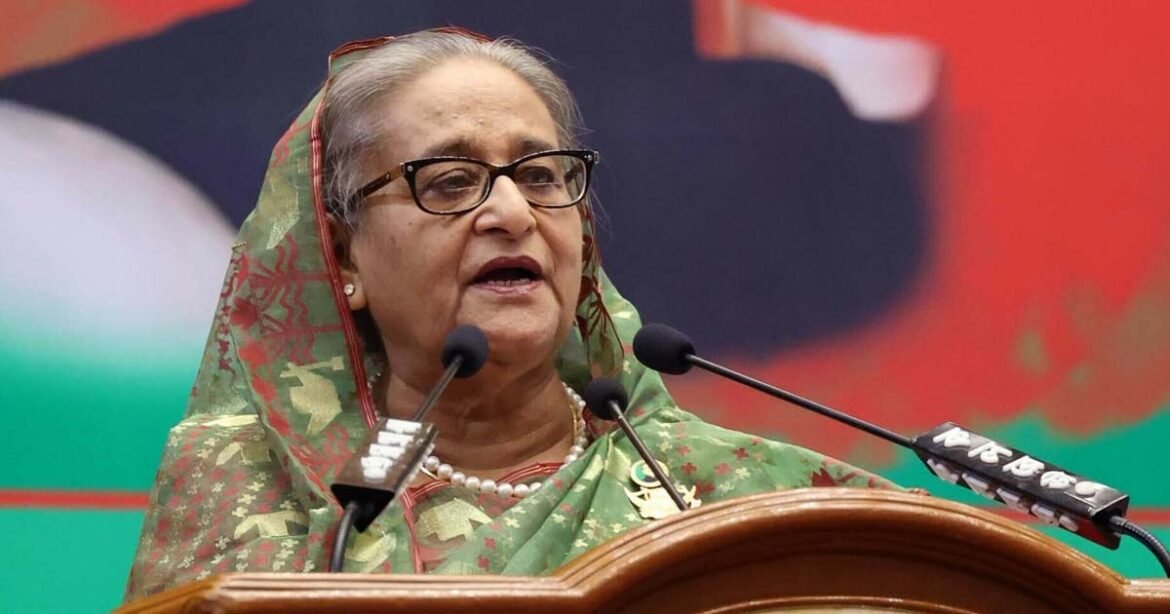The globally famed news agency Bloomberg has predicted that Prime Minister Sheikh Hasina will form the government for the fourth consecutive time. The report lauded PM’s strong decision to enact economic reforms which was a prerequisite for International Monetary Fund’s loan. Government leaders across the globe have frequently resisted enacting reforms agreed upon with the International Monetary Fund for fear of electoral repercussions, Bangladesh’s Prime Minister is an exception according to the report.
Bangladesh is the first to receive IMF loans; Why?
In South Asia, where Pakistan is still tampering with gasoline subsidies while inching closer to reviving a bailout, PM Hasina’s prompt fulfilment of IMF guidelines has stood out. This week, Sri Lanka postponed local municipal elections in order to increase taxes and interest rates in order to get IMF funding.
You can also read: Can Bangladesh afford to reintroduce the Caretaker Government after the momentum progress?
Bangladesh, which was the last of the three countries to request IMF assistance in July, was thbe first to receive loans after rapidly increasing energy prices. Sheikh Hasina, the 75-year-old Prime Minister, didn’t apologize for the move and stood by her decisions for the greater betterment of the nation.
Witnessing the unheard!
Sheikh Hasina made a statement a week after $4.7 billion in IMF loans were secured on January 31 that “Gas and electricity supply can be provided if all agree to pay the purchasing costs.” “How much subsidy can be given? And why should we continue subsidies? ”
Typically, such remarks are unheard of in the run-up to an election. All three nations will hold crucial elections within the next 18 months. In contrast to the presidents of Sri Lanka and Pakistan, however, PM Hasina is generally predicted to win a fourth consecutive term in national elections scheduled for January 2024 — not least because many of her opponents are imprisoned or involved in legal disputes.
“If the ruling party manages to maintain economic stability, that could preempt anger or public sentiment that works against the government,” said Michael Kugelman, director of the Wilson Center’s South Asia Institute. “Hasina certainly has the credibility to pull this off.”
What is the difference with the other neighboring countries?
In contrast, Pakistani Prime Minister Shehbaz Sharif scored poorly in a study conducted prior to elections later this year and has been held responsible for the economic catastrophe by voters. While Ranil Wickremesinghe has pushed through reforms, he relies on the support of a party run by a powerful clan and will need to seek a fresh mandate in September 2024 presidential elections.
The premier is counting on her government’s decision to approach the IMF to demonstrate to markets and voters that she has prevented the $460 billion Bangladeshi economy from defaulting like Sri Lanka. Pakistan likewise faces the possibility of financial ruin.
Bangladesh went to the IMF because it was having trouble with an energy crisis. Last year, commodity prices went up because of Russia’s war in Ukraine, and rising import prices made the trade deficit even bigger. The local currency plummeted by one-fifth, and foreign reserves reached their lowest level in three years.
By having access to IMF cash, PM Hasina’s government gains time to stabilize the economy before the upcoming elections. In spite of the fact that growth has slowed to around 3.5% during the epidemic, the premier has presided over an average annual rate of more than 6% over the past 14 years.
“Taking comprehensive steps”
The first assessment of the IMF programme is scheduled for the second half of 2023, and Bangladesh Mission Director, Rahul Anand anticipates “taking comprehensive steps” to eliminate subsidies and shift to a market-based currency rate.
So far, Bangladesh has received $476 million from the facility. Future disbursements are conditional on the government providing reforms for the financial system, including the central bank adopting an independent monetary policy, the reduction of non-performing loans, and the stimulation of finance for climate change.
Source: Bloomberg
(Against the backdrop of Bangladesh’s receipt of International Monetary Fund (IMF) financing, which Bloomberg credited to the South Asian country’s timely reforms to ensure economic stability ahead of the next national election, the article was issued.)


